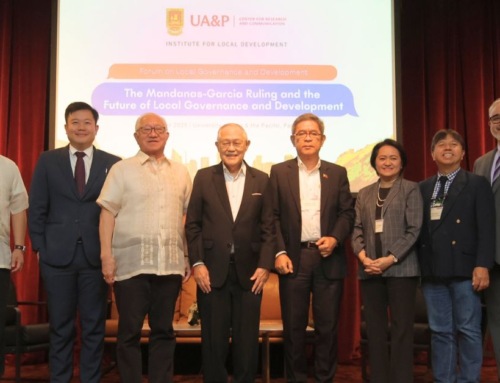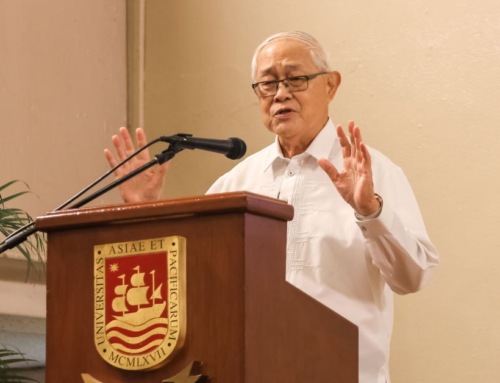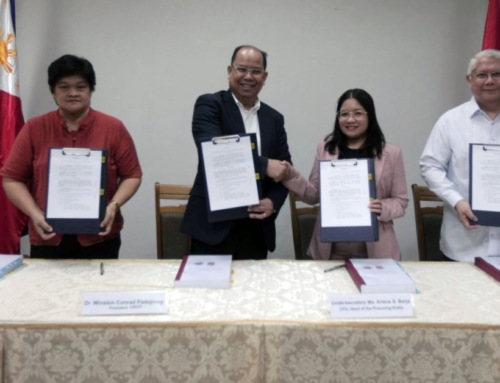If thousands of OFWs have come home through an amnesty program or voluntarily due to the ‘No work, No pay’ situation in their country of work, there are still millions who have decided or are compelled to stay.
Thanks to the Coalition of Licensed Agencies for Domestic and Service Workers (CLADS) and the Overseas Placement Association of the Philippines (OPAP) headed by Lucita Sermonia and Alicia Devulgado respectively, for giving us updates by organizing a series of Webinar with Philippine Overseas Labor Offices (POLO) in collaboration with DOLE, POEA and OWWA! From April 19 to 30, 2020, Labor Attachés described the current situation in 19 cities and countries: ASIA: Hong Kong, Japan, Macau, Singapore and Taiwan; MIDDLE EAST: Bahrain, Jeddah, Riyadh, Kuwait, Oman, Qatar; EUROPE: Germany, Geneva, Milan and UK; OCEANIA: Australia, New Zealand and Papua New Guinea.
From the series of lengthy discussions, I extracted the labor situation and options of Filipino workers have in these cities and countries as a consequence of the COVID-19 pandemic.
Asia
POLO Macau Labor Attaché Ma. Nena German hopes that Macau’s pending legislation on the conversion from tourist to worker status will allow this to happen after the pandemic because there are tourists who are stranded but desire to work in Macau. There are also changes made by the Philippine Consulate so that the Letter of Support is now limited to first degree relatives.
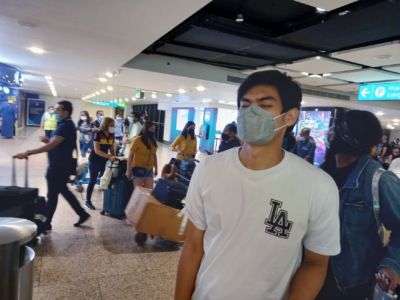
In Taipei, Labor Attaché Cesar Chavez, Jr. said the factories where thousands of Filipinos work are still operational. There are OFWs who chose to pre-terminate their contracts to receive their bonuses. If they elect to stay in Taiwan, they will receive the benefits specified in their contacts.
Japan made a big decision before the pandemic worsened. Government ordered the closing of schools and postponement of the Tokyo 2020 Olympics. According to POLO Osaka Labor Attaché Elizabeth Estrada, foreign workers in Japan are the luckiest because of Japan’s excellent social service system. Each worker, Japanese or foreign with residence card, is given JPY100,000 (Php 47,000) one time assistance. For those who had worked in Japan for at least six months and had made insurance payments, their Unemployment Insurance up to 80% of salary will be given. Aside from the financial assistance, the Japanese government also allows visa extension of three months so that the employees can continue working while waiting for the situation to normalize.
Labor Attaché Saul de Vries of POLO Singapore said many industries have placed their workers on Unpaid Leave, an arrangement is allowed by the Ministry of Manpower. The Singaporean government, for its part, provided relief to the employers by giving a rebate of SGD 750 for every foreign worker that they employ. It is up to the employers when the amount will be given to their workers.
Middle East
POLO Bahrain Labor Attaché Vicente Cabe announced that Bahrain has granted an amnesty for undocumented or the so-called “irregular” migrant workers who will now be allowed to legalize their stay and will be issued a visa valid until December 2020.
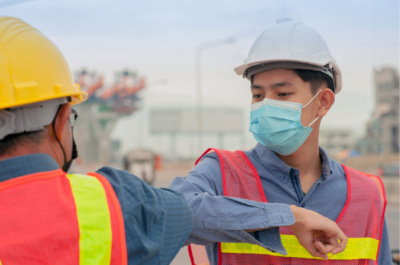
In Oman, POLO Labor Attaché Greg Abalos said that Oman has started to shift to ‘Omanization’, where certain jobs held by expats are now being given to Oman citizens. As a result, he expects that there will be greater demand for household service workers (HSWs) when citizens leave their homes to join the workforce.
In Qatar, when non-citizen decides to leave their job from the sponsor company, they have to secure a No-Objection Certificate (NOC) from their previous employer. POLO Qatar Labor Attaché David Des Dicang said there is a transfer procedure but when it comes to termination, it must be done in accordance with Qatar laws. A harmonized contract has been discussed with Qatar government. Unfortunately, it was put on hold due to the pandemic. The open hiring contracts and the hospitality Job Orders for FIFA 2022 will follow certain conditions. Definitely, the Philippines will support the manpower requirements of Qatar.
POLO Riyadh Labor Attaché Nasser Mustafa said the Ministry of Labor has a standing order against employee termination during the COVID-19 pandemic. OFWs will receive their salary during the 14-day-quarantine. Then they can use their Paid Leave, after which they will be classified under the No work, No pay scheme with food allowance and accommodations provided by their employers.
Europe
POLO Milan Labor Attaché Corina Bunag sadly revealed that thousands of Filipinos in Italy have lost their jobs. Others are using their Leave credits and then will be in the No Work, No Pay scheme. The Filipinos in Italy are mostly immigrants who have been petitioned by relatives. Many are part time workers with one or two hours of work and commute from one employer to another. They work for more than two employers as home cleaners or care takers, senior care givers, hotel personnel and other service work. There are also peddlers of cooked food, siopao, longganisa, chicharon and Filipino sweets. During the pandemic, however, employers restrict entry to their residence or workplace, thus the thousands of Filipino with no work and no income.

Still in Europe, POLO Germany Labor Attaché Delmer Cruz, hopes for the adjustment of work requirements for healthcare workers, including no prior work experience because of the high demand for health workers.
POLO UK Labor Attaché Amy Reyes cited the thousands of health workers in different parts of the UK. Although the Personal Protective Equipment (PPE) and test kits were slow in coming, the Filipino nurses and care givers persisted in COVID-19 patient-care. There is also a problem of transfer of employment without completion of contract. Employers want penalty clause but this is not included in the Standard Employment Contract.
Oceania
Labor Attaché Cynthia Lamban of POLO Australia’s advice to those OFWs who have been laid off from work is to go home rather than stay longer in Australia. This is because they could see that unemployment rate will go higher in the next months.
OFWs left behind in their country of work
As seen above, the situation of foreign workers in different countries and regions vary. This is understandable because the pandemic has gone on for almost half a year now on a global scale and has affected all aspects of life in a negative way.
The host government strategies reveal the strength of leadership and stability of social service system. The more comprehensive the government social services, the better it can protect the welfare of its laborers, including foreign workers. Japan is one country that can be emulated for its social services. When Japan decided to admit migrant workers, government revised its policies. Recall that during the 1996 Forum on Migrant Workers’ Problems in Fukuoka, Japan, it was recommended that a Migrant Workers Policy be made revising Japanese laws concerning foreign workers’ issues. More than two decades later, amidst the outbreak of COVID-19 pandemic, foreign workers still benefit from this policy. In Taiwan, factories are still operational and have not laid off workers. In fact, workers can still receive their bonuses because this is secured through the work contract. Many industries in Asia have been affected by airport lockdowns and slow movement in the shipping industry. Nevertheless, a lot of their business operations have resumed. In fact, Malaysia, Hong Kong and Singapore are ready to resume employment of migrant workers.
Massive repatriation of migrant workers from Saudi Arabia, Qatar and Kuwait to the Philippines, India, Indonesia and other countries took place in April. Aside from granting amnesty and special flights for migrant workers to return home, countries in the Middle East looked into policy compliance and implementation of agreements with countries that supply them with manpower. Extending work contracts and Paid work were not possible as many businesses stopped operation during lockdown. In fact, it was the Philippine government’s DOLE-AKAP for OFWS that offered US$200 financial assistance to displaced land-based and sea-based OFWs due to coronavirus disease.
Most Filipinos in Italy are immigrants who are skilled workers with part-time work. As Italy was badly hit by the COVID-19 pandemic, the immigrants lost their job but could not come back to the Philippines. At the other end of the globe, the OFWs in Australia who lost their jobs are advised to come home.
One thing that resulted from the situation was the surfacing of undocumented Filipino workers in different countries. The Amnesty program in the countries of work was for everyone, including those who were recruited illegally and held irregular jobs, the vulnerable ones who were displaced, distressed, the abused and maltreated due to lack of legal status. When the Philippine Embassies or Consulate offered the AKAP financial assistance, thousands showed up to apply for assistance, including undocumented workers.
The labor situation overseas is not stable and options are few. There are a lot of sacrifices, fear, uncertainty and confusion among migrant workers. And yet, the many millions who have decided or are compelled to stay in their country of work continue to communicate and send remittance to their family and relatives in the Philippines who are also affected by the consequences of COVID-19 pandemic.
———————————————————–———————————————————–
Learn more about CRC’s contributions in Migration and Overseas Filipino Work. In this field, CRC has brought about in-depth insight into the lives of the millions Filipino migrant workers whose contributions make a sizeable chunk of the Philippine economy – from their education and recruitment in the Philippines to their concerns and life strategies while working overseas, to their successful reintegration upon returning to the country.
The Bank of the Philippine Islands (BPI) Foundation, Inc., established the BPI Professorial Chair for Migration and Overseas Filipino Work (MOFW) on February 3, 2014. For years, the holder of the professorial chair has been undertaking intensive research on migration and development to guide policy makers, and publish teaching resource materials on the integration of migration into the K-12 Basic Education Curriculum subjects.
To find out more about CRC, send an email to [email protected], or message +639054280727, or follow us on LinkedIn. You can also find us on Facebook.



